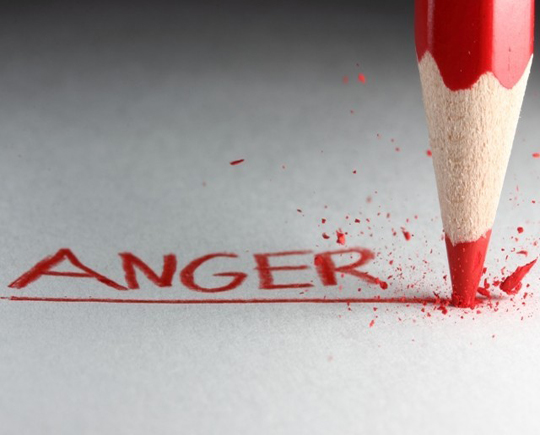What Happens When the Only Acceptable Emotion is Anger?

The backdrop is a classroom in a major city police department where officers are attending our 2-day Blue Courage training. The curriculum is different than most traditional police training in that it takes a holistic approach. It is centered on the premise that organizations are made up of human beings and when the focus is placed on individual growth, the organization naturally improves.
During an intense discussion about the culture of the police department, an officer raised her hand but didn’t ask a question. Instead, she made an observation:
“It seems as though the only acceptable emotion in our profession is anger.”
The default emotion is to be angry at a society that blames the police for crime and social ills. Officers are angry that they are being painted with a broad brush in response to bad behavior by other cops. Cops are disenfranchised by management who impose strict policy and discipline and are so removed from the front lines that they lack understanding. Cops are fed up with criminals who wreak havoc on their community and cops are losing faith in the criminal justice system that fails to hold violent offenders accountable.
The anger is justified and it’s comforting to be around comrades who are equally disheartened. Discontent is contagious and nothing brings people together more than shared misery.
It’s been my experience that negativity is the default baseline and we march together in lockstep with discontent as our drumbeat. We are unaware that negativity and anger are manifesting into all aspects of our lives. We unconsciously march with our angry band of brothers and sisters until someone abruptly changes the rhythm. We call this pattern interruption all it takes is one person courageous enough to offer a new and different perspective that challenges the collective negativity. For a movement to begin, it requires only one person to reveal a new alternative.
This is not an easy feat. It’s like trying to run up an escalator that is moving downward — you don’t cover a lot of distance but if you expound enough energy, you make progress. It’s as simple and subtle as refusing to march to the beat of the miserable majority. It can also be bold and declarative. Bold people and courageous actions change things.
The weak-minded will resist and march on, but some will find themselves enlightened to the possibility that things aren’t as bad as we’ve been telling ourselves. It’s not wrong to feel anger at those who have vilified noble police officers doing good work and it is justified to feel betrayed by those who have turned their backs on us. As comforting as it is to wallow in resentment, it does not serve our profession or our own mental wellness.
When you peel away that pesky layer of rage, it’s almost inevitable that pain is lingering just below the surface. Officers are hurting and the way to overcome the pain is to lean in and attempt to understand its origin. Rather than succumbing to the anger that continues to harden our hearts, our mission should be to change hearts and minds. Carrying anger only validates those who believe that cops are doing more harm than good.
The officer who made the revelation about anger being the only acceptable emotion in our profession brought enlightenment to the others in the room simply by acknowledging the problem. Sometimes that is all that is necessary to begin a new way forward. But more realistically, it will require courageous and deliberate action to begin to change our environment from negative to positive.
Every officer in that room nodded in agreement when the officer called out the problem in policing. Some even chuckled because they understood that we are our own worst enemy when it comes to the negativity loop in which each of us gets trapped. But it’s not enough to acknowledge it and do nothing to change it because now that we know better, we must do better. It will require an honest (raw) look at ourselves to determine if we are part of the problem. The first step is having the courage to be open to the notion that our individual actions are contributing to the culture and then choosing to do something about it. Every officer has the power to be a pattern interrupter but it takes a commitment to these ideals. It’s far easier to throw up our hands and stay apathetic but the great officers among us run towards risk — the kind of risk that requires moral courage.
It’s going to be difficult because there is nothing easy about changing a culture or starting a movement. But it only takes one courageous person to change themselves. One drop starts the overflow.
If not you, then who?
Kristen Ziman
Chief of Police (Ret.)
Blue Courage Educators
Stay connected with news and updates!
Join our mailing list to receive the latest news and updates from our team.
Don't worry, your information will not be shared.
We hate SPAM. We will never sell your information, for any reason.

